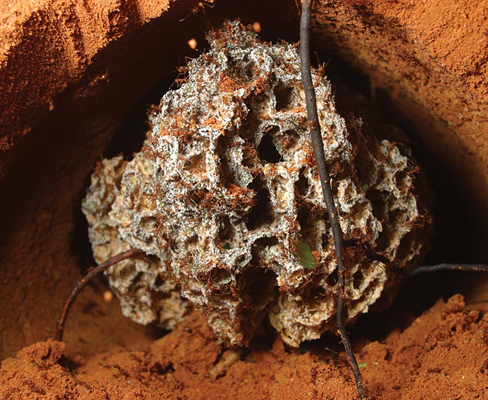Scientists have been grappling with the challenge of efficiently breaking down plant materials into useful bioproducts for decades. From biofuels to plastics, these products offer potential solutions to various environmental and economic issues. However, certain polymers, such as lignin, have remained stubbornly resistant to degradation, posing a significant hurdle to sustainable resource utilization.
Recently, a team of researchers at Pacific Northwest National Laboratory (PNNL), led by Kristin Burnum-Johnson, made a breakthrough in understanding the natural process of plant degradation. Their innovative imaging technique, called metabolome informed proteome imaging (MIPI), allowed them to delve into the molecular intricacies of this process.
Their study focused on a fascinating symbiotic relationship between leafcutter ants and a fungus known as Leucoagaricus gongylophorus. These ants cultivate fungal gardens that degrade plant material, transforming it into nutrients for the entire ecosystem. By leveraging MIPI, the researchers identified key components and biochemical reactions involved in this degradation process.
Their findings unveiled crucial metabolites and enzymes that drive essential biochemical reactions for plant degradation. Additionally, they uncovered the significant role played by resident bacteria in enhancing the efficiency of this process. These insights hold great promise for the development of future biofuels and bioproducts that are sustainable and environmentally friendly.
The complexity of the fungal community presented a unique challenge for study, but MIPI enabled the researchers to observe and analyze the intricate interactions at a molecular level. By meticulously scanning sections of fungal gardens, they pinpointed the locations of metabolites and enzymes, shedding light on the breakdown of plant polymers like cellulose and lignin.
This research not only deepens our understanding of natural degradation processes but also provides invaluable insights for the development of sustainable bioproducts. Burnum-Johnson and her team are optimistic about the potential applications of their findings and intend to further investigate how fungal communities respond to environmental disturbances.
Their success underscores the importance of studying complex environmental systems at a molecular level to unlock their full potential for biofuel and bioproduct production. With continued research and innovation, we may unlock new solutions for sustainable resource utilization in the future.















































